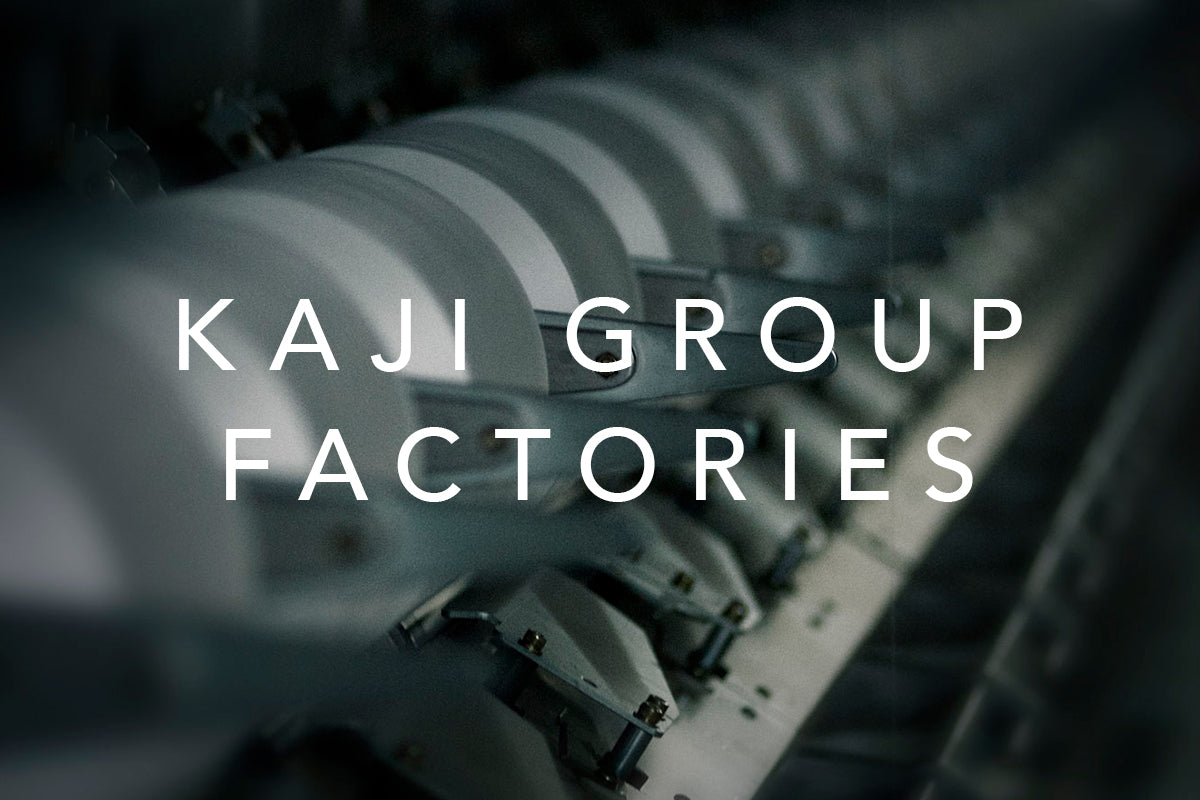
We sneak into the factory of K-3B's parent company, textile manufacturer Kaji Group!
The materials used in K-3B products are developed by a textile manufacturer called "Kaji Group" located in Ishikawa Prefecture. We will introduce the manufacturing site, which consists of three factories: "Kaji Nylon" which processes yarn, "Kajilene" which produces textiles, and "Kaji Knit" which produces knitted fabrics. Please take a look at the background of the advanced textiles created by this group of textile specialists.
The story begins with the development of "thread." -Kaji Nylon-

Kaji Nylon is a company that specializes in the processing and manufacturing of synthetic fiber yarns. This is the site where processed yarns that require precise management, such as ultra-fine fibers and false-twisted yarns, which are high-quality enough to be used by the world's top brands, are produced. False-twisting is a process in which raw nylon and other fibers are bundled together, twisted while applying heat, and then untwisted to give each fiber a fine curl. This gives the previously straight yarn elasticity and a sense of airiness.
The "A Fabric" of K-3B uses this false twist yarn wrapped around a polyurethane core thread to create a single woven thread, which gives it outstanding stretchability and a modern texture that reduces the scratchy feel that is characteristic of nylon. There are a wide variety of other processing techniques, and by combining them, cutting-edge threads with various functions are created.
Invisibly thin threads are delicately woven. -Cajirene- 

Kazirene is a synthetic textile manufacturing factory. In a large space, countless rolls of ultra-fine fibers are lined up, and the threads that extend from them are individually loaded onto a loom, where they are wound up at high speed to become a single piece of fabric. As you can see from the image, the fibers are so thin that you can clearly see through them. 
When processing fluffy, ultra-fine fibers like spider silk in a stable state, the biggest enemy is the generation of static electricity due to dry air. Ishikawa Prefecture has a humid climate with a lot of rainfall, so humidity levels suitable for yarn processing and the establishment of weaving factories are maintained throughout the year. The textile industry developed in the Hokuriku region because of its blessed climate. In addition to these ultra-thin materials, Cajirene is applying the latest technology to weaving design to develop a variety of new materials, such as fabrics that have the texture of natural materials and fabrics that are stretchy despite not containing polyurethane.
Unparalleled high gauge knitting, the bearer of high quality knitting - Kaji Knit - 

Gauge (G) is a unit of measurement that indicates the density of the knitting machine's needles, and is a number that indicates how many knitting needles are in 1 inch (approximately 2.54 cm). The higher the number, the finer the stitches, and anything over 28G is called high gauge. K-3B 's representative material, "N Fabric," is surprisingly fine at 40G. In addition, by using a machine called a "double knit knitting machine" with two rows of knitting needles, it is possible to achieve a two-layer structure on the front and back, with 40G on both sides, resulting in an extremely smooth and delicate texture.
The fabrics, which have a high density and a smooth texture that makes it hard to believe they are made of jersey material, are produced by the ripple-like movements of thin needles densely arranged on a huge cylinder. This is a professional production site that requires delicate tuning techniques and humidity control.
In addition to the three companies introduced here, the Kaji Group also operates a machinery business, and develops and manufactures its own machines for manufacturing textile products.
We deliver K-3B products from an environment where tailors create all of their textiles from scratch.